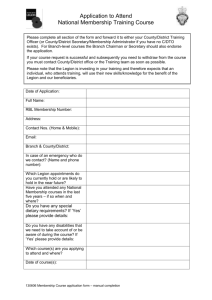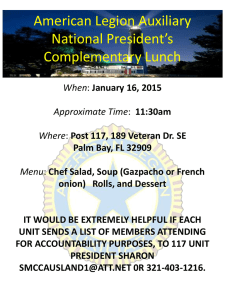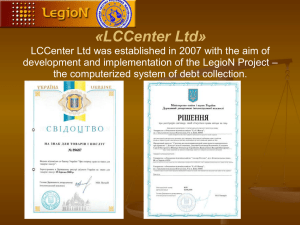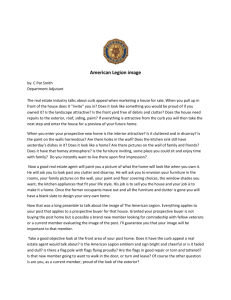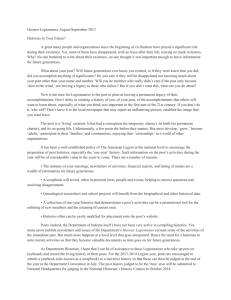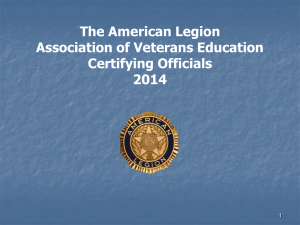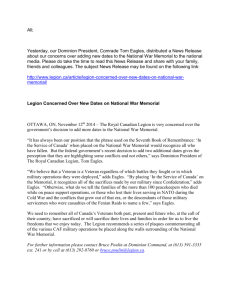Article 3 Begin the Process
advertisement
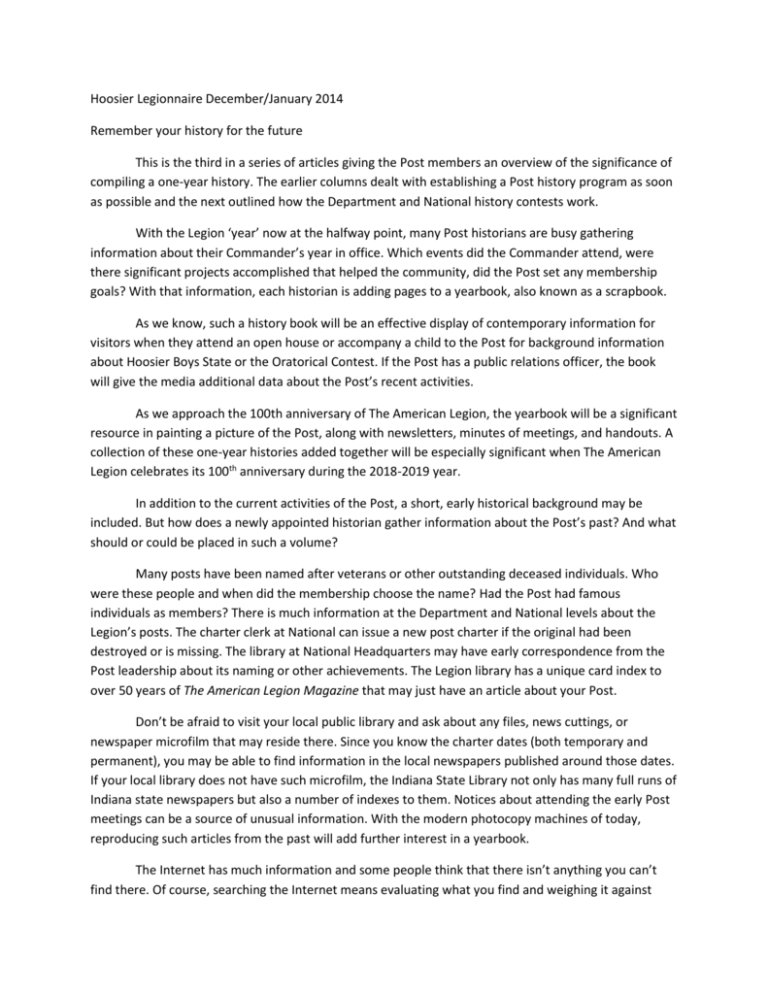
Hoosier Legionnaire December/January 2014 Remember your history for the future This is the third in a series of articles giving the Post members an overview of the significance of compiling a one-year history. The earlier columns dealt with establishing a Post history program as soon as possible and the next outlined how the Department and National history contests work. With the Legion ‘year’ now at the halfway point, many Post historians are busy gathering information about their Commander’s year in office. Which events did the Commander attend, were there significant projects accomplished that helped the community, did the Post set any membership goals? With that information, each historian is adding pages to a yearbook, also known as a scrapbook. As we know, such a history book will be an effective display of contemporary information for visitors when they attend an open house or accompany a child to the Post for background information about Hoosier Boys State or the Oratorical Contest. If the Post has a public relations officer, the book will give the media additional data about the Post’s recent activities. As we approach the 100th anniversary of The American Legion, the yearbook will be a significant resource in painting a picture of the Post, along with newsletters, minutes of meetings, and handouts. A collection of these one-year histories added together will be especially significant when The American Legion celebrates its 100th anniversary during the 2018-2019 year. In addition to the current activities of the Post, a short, early historical background may be included. But how does a newly appointed historian gather information about the Post’s past? And what should or could be placed in such a volume? Many posts have been named after veterans or other outstanding deceased individuals. Who were these people and when did the membership choose the name? Had the Post had famous individuals as members? There is much information at the Department and National levels about the Legion’s posts. The charter clerk at National can issue a new post charter if the original had been destroyed or is missing. The library at National Headquarters may have early correspondence from the Post leadership about its naming or other achievements. The Legion library has a unique card index to over 50 years of The American Legion Magazine that may just have an article about your Post. Don’t be afraid to visit your local public library and ask about any files, news cuttings, or newspaper microfilm that may reside there. Since you know the charter dates (both temporary and permanent), you may be able to find information in the local newspapers published around those dates. If your local library does not have such microfilm, the Indiana State Library not only has many full runs of Indiana state newspapers but also a number of indexes to them. Notices about attending the early Post meetings can be a source of unusual information. With the modern photocopy machines of today, reproducing such articles from the past will add further interest in a yearbook. The Internet has much information and some people think that there isn’t anything you can’t find there. Of course, searching the Internet means evaluating what you find and weighing it against other sources and common sense. But the Internet does allow some useful keys to what some governmental agencies have in their collections. For example, the Indiana State Library website reveals a number of items related to American Legion posts, such as “A Legend of the Legion”: a history of the Howard R. Smith Post no. 137 … New Castle, Indiana. There may be other resources at the state library collection such as town and city histories that make reference to the Legion. Don’t forget old city and town directories. Although many of the books in the collection are for use only in the library, photocopying is permitted when you do visit. Other good sources of information are the websites of the Indiana Historical Society and the Indianapolis-Marion County Public Library. While it may take some detective work to run down background information about your Post and its history, writing it down and preserving it for the future will make writing the next one-year yearbook a piece of cake.
